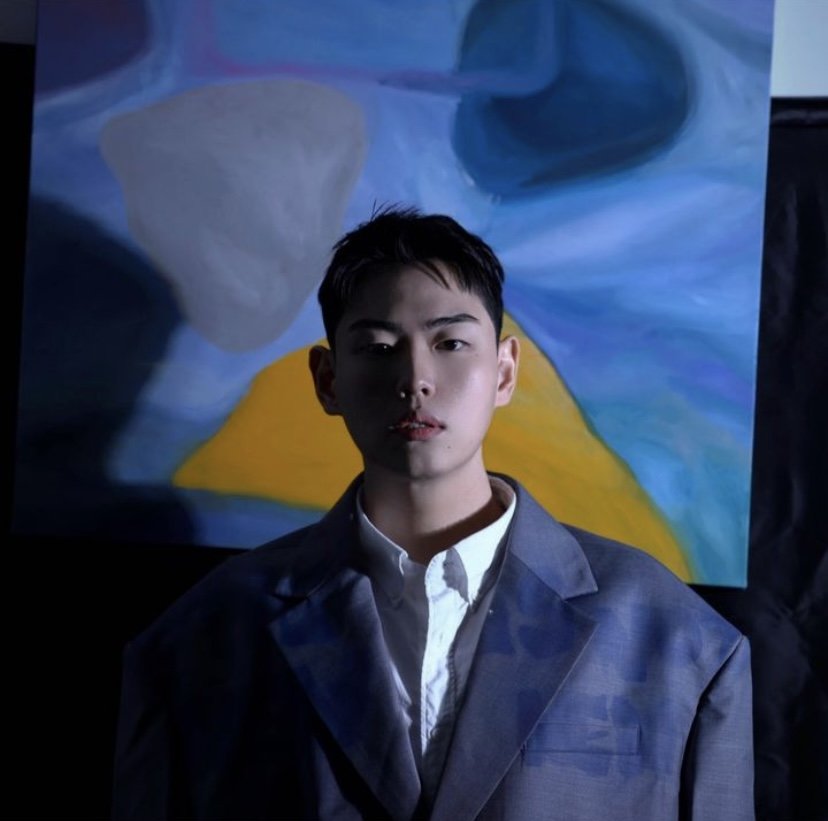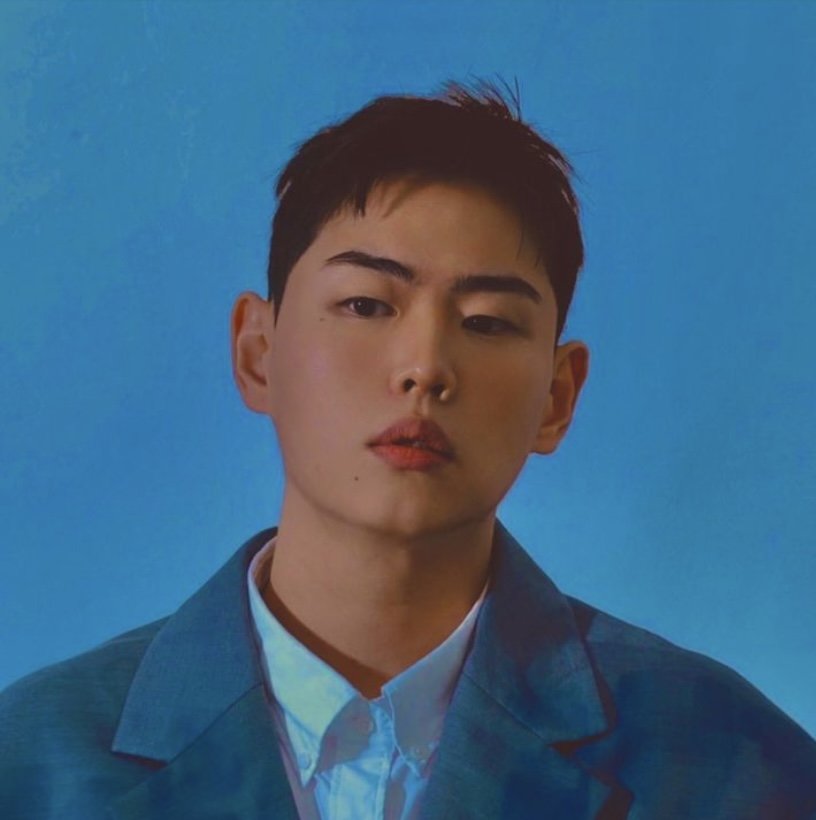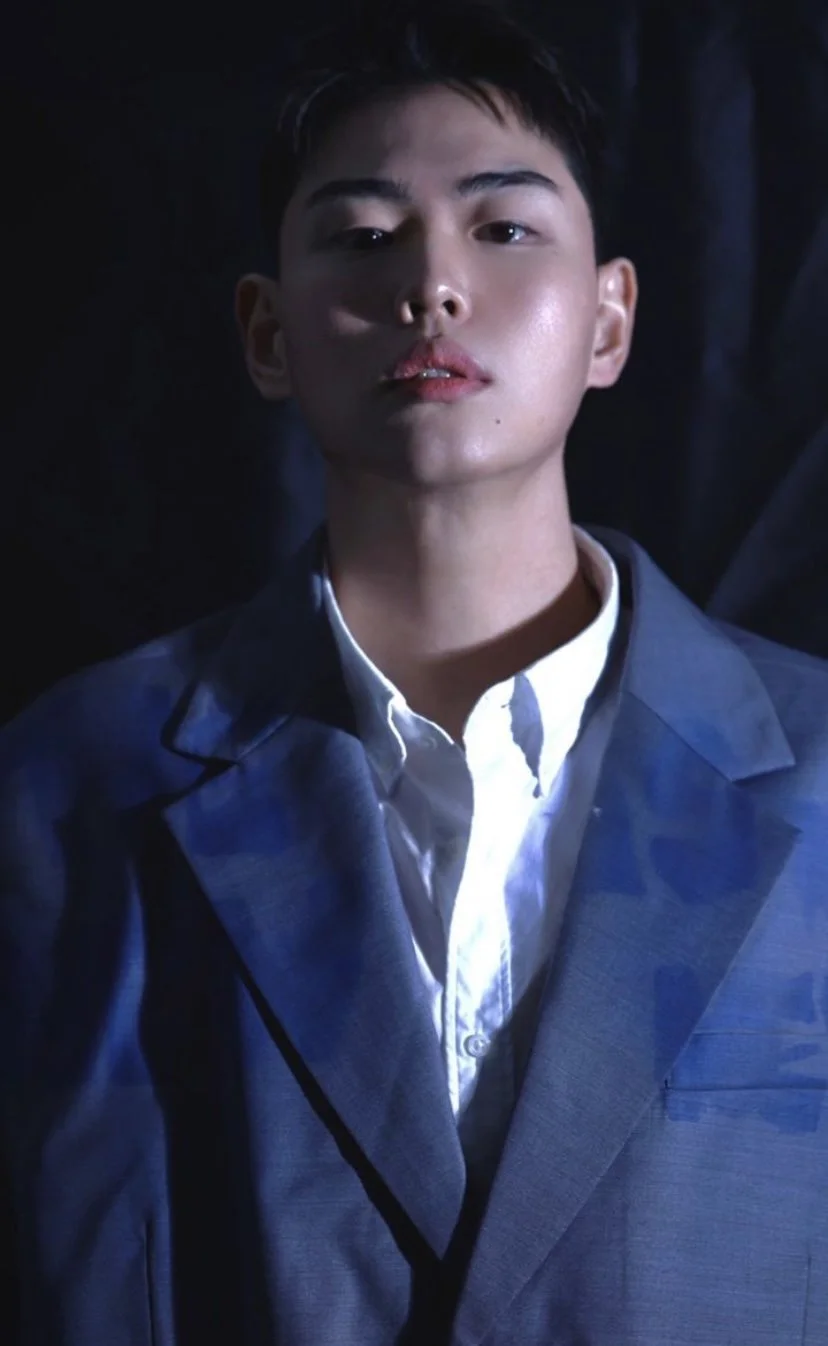On His New EP, Korean Singer-Songwriter adore (아도레) Embraces The Sunlight
“When I focus in the studio, I feel completely free,” adore says in this interivew.
Across three gorgeous EPs, adore (아도레), a singer-songwriter from Seoul, has written stories that explore the anxieties of displacement.
“There is no space that has felt like home to me except for my apartment in Seoul where my first memory existed,” the singer told me this week from Korea. Adore spent his childhood in this home until he was 14-years-old. For a long time, he remembered, he floated from place to place, never feeling settled anywhere.
Instead, the space where adore grew to feel the most comfortable was a recording studio. “When I can focus in a studio, I feel completely free,” he said.
The music adore has created reflects his search for comfort. His work is multi-dimensional: Each album is accompanied with essays that read like poetry and the cover art often features oil paintings by the artist Yu Minhee.
“I hope my music is comforting and intimate for listeners," he explained. “But to be honest, most of my music’s topics are about anxiety. Anxiety about something that won't come to me is the main emotion of all my creations. And it's also cowardly.”
For the first time adore is featured on the cover of his latest EP “closed eyes, daylight daydreams” but art is still featured: A large blue and yellow painting hangs behind him. His face is awash in blue and black light.
“All of my creations made with my fingertips and mouth tips are looking at me with a blank expression,” he writes in the essay that accompanies the EP. “Am I right about being me?”
For the first six years of his career, adore recorded his music in a small basement studio. He made some of his best work there: melancholy, somber tunes that are perfect for a rainy day. I believe that to really appreciate adore, you should start with these songs, like his “2005” EP, which includes the fantastic track “이름 (name)”.
Recently on one particularly moody morning, I listened to “이름” for the first time on the streets of New York. I was in a city whose streets were overflowing with lovers, drunk friends, and families on vacation. But that morning I was alone. My therapist called it grief as I cried to her on the phone but ““이름” broke through the noise. I listened to it on repeat that day while I cried, again, at the Whitney Museum while looking at the skyline, and again on 32nd street as I pushed through throngs of tourists to get to my hotel. By the time I got home, I realized what I was craving: a connection; a sense of home.
In an essay accompanying the song, adore again writes poetically, “I remembered the past. Lying next to you who would be warm forever. I was moved by the sound of the hidden movement next to me, which was like a blessing. I suppressed the urge to touch you.”
When ADORE moved to a second floor studio this year, he noticed a change as the sunlight streamed in through his window. He had been working on one song, which he told me he felt was geared too closely to what the public wanted. So he deleted it and started again.
Quickly, a new song came into form. “There was one track left and the song that I made in a hurry is 'SUN'. It is the first time in six years that I made music while looking at the sunlight.” The decision for a single felt easy. He told me, “The song ‘SUN’ had to come out.”
“I never directly reveal the topic and feelings for my music,” adore said. His music is filled with mystery.
‘SUN’ is the lead single for the singer’s new EP “eyes shut, daylight daydreams”. The title pays homage to the Chinese author Yan Lianke’s book “Dark Day, Blue Night”, specifically the line, “If you live with your eyes closed, you'll have a daydream”.
Adore maintains that he is not a huge fan of poetry. “I’ve only ever read two books of it,” he said. “But I really like novels.” The singer has read all the classics, but recently shifted to modern novels. This has opened up his own writing. When I asked if anyone in particular inspires him, adore cited Korean novelist Kim Seongok as a writer who encourages him to ask exacting, uncomfortable questions.
“I want to have the same image as Kim Seungok in the music industry,” he said. Kim’s writing style veers towards nihilism and fantasy, which can be heard in adore’s music. “His style is delicate and lyrical,” adore explained, “but the description is explicit and the narrative is destructive.”
This inspiration fuels adore’s mercurial writing. His work is nuanced and layered, like a Coen Brothers film, a filmmaking pair that he greatly admires. But it also reminds me of Yu’s paintings that he features on his album covers: gorgeous but distant; fragile enough that they could shatter if touched.
“I never directly reveal the topic and feelings for my music,” he told me. “I cover it up with metaphors, comparisons and expressions. I use disingenuous lyrics.”
There is something radical in adore’s refusal to explain himself. The singer is adamant that listeners are free to interpret the music however they want, which makes approaching his writing and music akin to learning a foreign language. Confusion eventually gives way to fascination, and soon, his music’s inability to contextualize feels admirable.
“My music doesn't want the listener to clearly know what I'm trying to say,” he said firmly. “I definitely have a story written down, but I hope the listener interprets it their own way.”
Adore’s first memories of music come from his family. When he was five or six years old, the singer spent a day at an amusement park with his older sister and uncle. Although he was young, that day was still burned into his mind when he told me about it.
“We listened to the Beatles ‘Yesterday’ on the car ride home,” he recalled. “It was a shocking feeling; the feeling of meeting music for the first time.”
From there, adore began a love affair with music. When he was a teen, he made use of a discarded guitar that his sister had abandoned after only a week of playing it. “Then I became like this,” he said simply.
“Like all teenagers in Korea, I grew up listening to Korean ballads and Korean dance songs. Then I listened to Korean rock. A friend I met in middle school showed me Led Zeppelin,” he remembered. His interest in the Beatles unleashed a massive affinity for British rock music. The angsty, wild style of British rock possessed an authenticity that appealed to adore. But his music taste continued to unravel and become more eclectic. Soon, he said, “I listened to hip hop and American R&B soul a lot.”
His parents, he maintained, have always supported his career. “My biggest fans are my parents. They never wanted me to stop my music life, but rather cheered me on, telling me not to give up at a time when I was slowing down,” he said.
adore’s attributes their support to his parents being part of a changing generation of older Koreans. “There are three categories of Korean parents for my generation,” he explained. “Those who want their children to do what they have done, those who want their children to do what they’ve never done before, and those who want us to do what they were never able to do.”
Korea’s rapid wealth expansion and punishing worklife has created a culture that devalues pleasure. Many middle-aged Koreans, like adore’s mother and father, were never able to pursue a career in the arts. “I can understand,” said. Today, parents like adore’s are looking back at their own youth and are “regretting” what they couldn’t accomplish.
adore’s career is made possible by those regrets.
Through his music, adore “wants to infiltrate your world.”
Today, adore makes music alone.
This solitary work suits him. “Doing all the work yourself makes you fixate on the color of the song you’re recording,” he said. “When I feel like I can’t do anything new without collaboration, I’ll change how I work.”
Though he’s an independent artist with no one to answer to but himself, adore adheres to strict rules. “I never complete a song without a deadline. I've never done that before. I set the album release date in advance and work accordingly,” he explained. Once, he told me, he didn’t set a deadline and as a result, didn’t record a song for two years. As a result, he releases his music by the deadline whether he likes it or not.
“Eyes shut, daytime dreams” comes at a pivotal moment in adore’s career. Though he’s released music for years under the name PICTIONS (픽션들; pronounced like “Fictions” in English), this will be the first EP under his new stage name. “When I chose 픽션들, I guess I believed that I would do more pure and artistic music. But in reality, that was hardly the case,” he said. “I wanted to build my own world with music, but I thought the purpose was to trap my music in some frame.”
This year, he switched to adore. “It’s Latin,” he said. “I chose it because all of my lyrics contain affection and anxiety.” The music’s warmth is reflected in this new name.
adore is lucky, he maintains, because he’s surrounded by people who believe in him. “No one around me who loves me has ever encouraged me to give up music. Everyone cheered for me. Of course, people I don't consider important have jokingly told me, ‘Why don't you quit,’ but that's never affected me,” he said.“That's why I have no hesitation in taking control of my career. Everyone around me trusts me so it doesn’t make sense that I wouldn’t trust myself [and do my best].”
There is more music scheduled to be released this year, but adore is proud of “closed eyes, daytime dreams”. He hopes that listeners connect with the album.
“Beyond creating my own musical world, I want to infiltrate your world. I made all six songs in a different atmosphere, and every song has a color that only I can make,” he said. “I hope you'll enjoy it, and I hope you watch me.”




